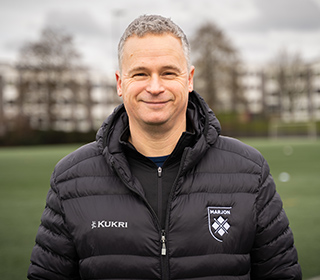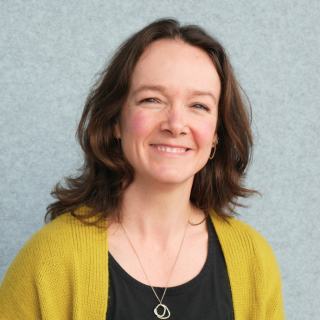MRes
MRes is a research focused Master's which provides an ideal platform for professional development or prepares you for PhD study. Pursue your own research interests; do what excites you. Specialisms include: Sport, Psychology, Health, Education, plus much more. Scroll down for the full list.

Entry requirements
A 2:1 honours degree or equivalent.
We welcome applications from experienced practitioners with non-traditional qualifications.
Applicants may be assessed at interview
UCAS code Apply to Marjon
UCAS institution code P63
Duration One year full-time or two years part-time
Any questions about postgraduate study at Marjon?
Contact Rachel Bailey-Lewis, our Student Recruitment Officer (Postgraduate).
Course Summary
The Master of Research (MRes) is a flexible programme based around three taught research methods modules, an independent project relating to your specialist subject area, and a Master's thesis (supported through academic tutorials). The supervisory team are all research active within their subject specialisms.
The programme promotes collaborative engagement between students and research active academic staff. This engagement has already resulted in a number of research publications. It provides an opportunity for individuals from a range of professional and academic backgrounds to gain a critical appreciation of developments in their specialist subject area and to enhance the analytical and research skills necessary to engage in advanced research projects.
The MRes forms an important part of the Higher Degree portfolio of the University. The MRes programme provides a good grounding in the research process and can be used as a stepping stone into Doctoral research.
It provides an opportunity for individuals from a range of professional and academic backgrounds to gain a critical appreciation of developments in their specialist subject area and to enhance the analytical and research skills necessary to engage in advanced research projects. The flexibility of the programme makes it suitable for both those who are experienced practitioners undertaking senior roles, as well as less experienced students looking to lay the foundations for a new career pathway following an undergraduate degree.
Popular subject specialisms include:
- Psychology
- Criminology
- Forest School
- Outdoor Education
- Sport Coaching
- Sport Performance Analysis
Additional subject specialisms include:
- Applied Sport Development
- Business
- Communication disorders
- English Literature
- Health and Wellbeing
- Inclusive Physical Education
- Journalism
- Linguistics
- Outdoor Learning
- Physical Activity and Public Health
- Psychotherapy and Counselling
- Social Sciences
- Socio Cultural Studies in Sport
- Sport and Exercise Psychology
- Sport and Health Sciences
- Sport and Leisure Management
- Sport and Public Policy

Why this course at Marjon?
Design your own research projects with a supervisor with related expertise and a real interest in your ideas
Be positioned at the cutting edge of contemporary issues and debates about literature
Flexibility to pursue your research projects over one or two years
Scope to be original and innovative in your approach and thinking
Research based Masters which provides an ideal platform for professional development or prepares you for PhD study
We welcome applications from experienced practitioners with non traditional qualifications
Modules for this course
Course Snapshot
“ The MRes course enables students to explore a very specific topic within their chosen subject area. The lecturers are extremely knowledgeable and give help and guidance at every opportunity. You’ll learn essential research design skills to help you to develop your Master’s thesis. The modules are the same no matter what subject you study and you’ll be assigned a specialist tutor from your own subject area who will guide you through the process to ensure you gain the most out of the course.”
1st Year
Critical perspectives on the research process
Interdisciplinary qualitative and quantitative research methods
Disciplinary specific research methods
Contemporary contextual issues
Master's project
Current students say...
Helen
“At Marjon, I’ve been able to put an idea into action by running a Menopause Café on campus. This has enabled me to create an environment that allows women to share their experiences and feelings, and meet some amazing people. After graduating, I’m considering progressing to a PhD in clinical psychology, or maybe a psychology role in the NHS, using the skills and knowledge I’ve gained at Marjon."
Research areas and topics that might interest you
Understanding a new approach to supporting children of excessive weight as part of a multi-disciplinary team
Investigating factors that contribute to 'plant blindness'
Investigating attitudes to maths in children and young adults
Female performance, health and well-being in sport and coaching
Dehumanisation and Pathologisation of female offenders
Outdoor educators relationship with place
“ I hadn’t appreciated, prior to engaging on the course, the tremendous amount of resources that Marjon provides; not just in terms of outstanding laboratory research facilities; but in terms of people.”
See where our graduates are now
Ron Kiddle
“MRes is structured with the individual student in mind. Personal supervision from an enthusiastic and highly insightful supervisor offered an open approach to project design. This granted me the means to release my intellectual energies in a productive way. I found the process not only helped to expand my investigative abilities but also increased my self-confidence. MRes was a gateway to PhD, and an enjoyably rigorous undertaking. It has been an experience for which I will always be grateful.”
Ron is now a PhD student.
What might you become?
Your MRes experience with Marjon is customised to reflect your own professional aspirations and increase your potential to progress with your current employer or within the wider sector. The MRes programme also provides a good grounding in the research process and can be used as a stepping stone into Doctoral research.

How you’ll be taught and assessed?
How will you be taught?
Teaching combines interactive lectures, seminars and workshops, all supported by online materials and tutorials. The research project supervisor will have expertise in the chosen area and will provide guidance throughout the process. Where appropriate, a second supervisor will also be involved.
How will you be assessed?
Our assessments are throughout the year and include portfolios, reports, research proposals, presentations, a literature review and the Master's research project. The assessments are designed to offer you the ability to demonstrate your knowledge and provide you with research skills.
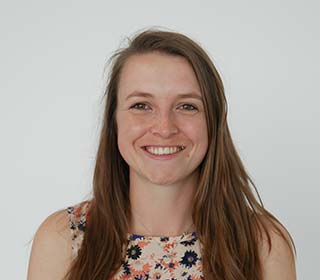
Rosanna manages the MRes framework, she is an experienced researcher and the first point of contact for enquiries about the MRes framework.
Your schedule
Students can expect to be on campus one day a week.
Course location(s):
You are required to attend sessions at our Plymouth campus.
Fees and funding
Fees UK students: £9,790 per annum
This fee covers your tuition and access to course-specific equipment and facilities, as well associated services including access to the library, study skills support, IT support, student support and wellbeing services and membership of the Student Union. There may be additional costs by course.
Funding available for this course
Our Student Funding Advisors offer confidential and impartial advice about your funding options.
Learn more about fundingLecturers
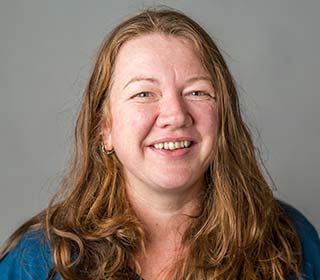
Hazel is an Associate Professor in Psychology. She teaches qualitative research methods and conceptual and historical issues in psychology.
She is a chartered member and associate fellow of the British Psychological Society (BPS), and a senior fellow of the HEA.
She is a member of the BPS Member Board and UEC.
Her interests include identity, student wellbeing and academic buoyancy, and student leadership. She is currently supervising 4 PhD students on projects relating to the embodiment of cognition, lived experience of menopause and, respect in primary schools.
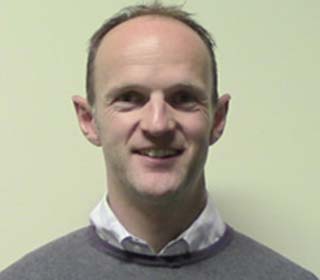
Saul's research focuses on the prevention and treating non communicable disease through lifestyle interventions. He has established several health and wellbeing clinics in partnership with the NHS and charitable organisations to support patients with back pain, cancer, fibromyalgia and leg ulcers.
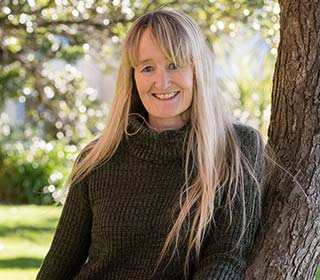
Dr Katheryn Edwards, CPsychol, AFBPsS, FHEA, is a Senior Lecturer in Psychology at Plymouth Marjon University, UK. Her research specialises in cognitive development, particularly theory of mind, and she has published in Cognition, Scientific Reports, and Cognitive Development. Katheryn completed her PhD at Victoria University of Wellington, New Zealand, where she developed innovative methodological approaches to understanding automatic belief-tracking. Katheryn teaches across a number of modules relating to cognitive psychology, developmental psychology, research methods and study skills. Katheryn serves on the BPS South West Committee and is an Academic Liaison Tutor for the University’s international collaboration with AIC Campus, Sri Lanka.

Having worked as an educator and adventure sports coach in Greece, The Netherlands, and now in the UK, Georgios (commonly, 'Giorgos') carries with him a breadth of international experience and a passion for teaching outdoors. His research focuses on key issues such as the relationship between adventure practice and peoples' cultures, and the use of digital technologies for educational purposes. As the leader of the BA (Hons) Outdoor Adventure Education, Giorgos constantly strives to ensure that the programme is up to date with current research and modern educational approaches, and that all students are given the support they need to succeed in their studies.
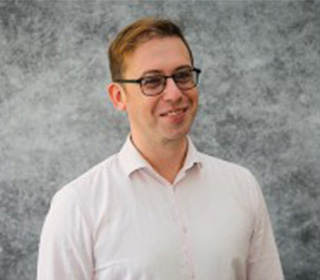
Jonathan specialises in applied neuropsychology and has a research background investigating the therapeutic use of gamified cognitive training for young people with visuocognitive difficulties caused by brain injury or neurodivergence. He is a Fellow of the Higher Education Authority and teaches across a number of modules on the undergraduate and postgraduate psychology programmes related to cognitive neuroscience, neuropsychology, and applied research methods.
More information
If you are thinking of applying for the MRes here are some tips for things to cover in your application.
- Why you would like to do an MRes?
- Why you would like to do an MRes in your particular subject?
- What are your current research interests?
- Are you considering full-time or part-time study?
- We also want to know about you as a person. What are your interests? Provide detail about relevant research and work experience.



